SOUTH PORTLAND — As Rick Elias prepares to sauté some beef, onion, garlic and pine nuts on the stove, his grandniece Arria Doll is busy at the kitchen island, pressing a mixture of raw lamb, onion, cracked wheat, egg and spices into a glass baking dish.
As the beef begins to sizzle, the 8-year-old giggles and says “I love the smell!”
Elias and his niece are making a Lebanese dish called kibbeh from a recipe that has been passed down in his family through generations – ever since Elias’ grandparents, Olie and Nezira, emigrated to Maine through Ellis Island at the end of the 19th century. Olie was pushing 40 and had already lost one family to some now-forgotten tragedy. His new bride was 16, or maybe 14, depending upon which census record is correct. The couple settled in Bangor, where Olie opened two grocery stores and became a successful businessman.
Nezira – who changed her name to Louisa when she settled in America – died just months before Rick Elias was born, “but she’s had more influence on me than probably anybody alive,” the 58-year-old hairdresser said, “mostly because of my mother’s great words about her mother-in-law. And my father worshiped his mother.”
With his father, mother and brother gone, Elias is now the unofficial patriarch of the family, and happily passes along the recipes that tie him to his Lebanese heritage to any relatives who show an interest. Kibbeh is a Middle Eastern dish that takes different forms, depending upon which country is making it. Elias’ version is a layered lamb-and-beef dish that resembles an American meatloaf but is filled with fragrant spices, cracked wheat and pine nuts.
“Kibbeh is the national dish of Lebanon,” Elias said. “Lebanon, as you might know, has been under siege forever, and Lebanese cuisine is a mishmash of everybody’s influence – French, African, Egyptian.”
Elias’ baked kibbeh is known as kibbeh sanieh. Raw kibbeh, a popular variation, is kibbeh nayyeh. Some cooks also make kibbeh burgers and kibbeh meatballs.
Kibbeh spices vary from kitchen to kitchen. Elias’ personal blend contains marjoram, cumin, cinnamon and cardamom.
If Elias wants to grind the spices himself, he uses his grandmother’s 100-pound marble mortar and one of two old wooden pestles. The mortar and pestles, which his grandmother probably used to grind lamb and other meat, were discovered in her basement after she died. The mortar had been painted white. It’s unclear whether she brought it with her from Lebanon.
Elias took the mortar to a granite shop to have it polished back to its original condition. He says the mortar weighs more than his grandmother did.
After settling in Bangor, Elias’ grandparents went on to have six children, four of whom lived. Elias’ father, Louis, became a butcher. His grandfather, who had arrived in this country as a peddler, amassed a small fortune with his grocery stores, one of which was located on Hancock Street, in the heart of the immigrant community. Olie Elias died in 1928.
“My grandmother was here 70 years but never learned to speak English,” Elias said. “She was an old peasant lady who lived in a 14-room house full of antiques. She was not upwardly mobile. She was happy the way she was. She was on her knees in the garden all the time, and slept on a wooden cot on the porch.”
Elias’ mother Betty was from Ellsworth, and she “was a wonderful Yankee cook,” but she became an excellent Lebanese cook as well – by learning from her mother-in-law.
“My mother wasn’t even Lebanese, and she was the best Lebanese cook I knew,” Elias said. “When (my parents) were first married they lived with my Lebanese grandmother in that big house. My mother spent a lot of time with her mother-in-law. She wanted to make all of (my father’s) favorite things. And so she learned.”
Elias learned how to cook the family dishes from his mother (he used to chop vegetables for her) and an aunt named Habooba in Waterville. (Habooba means “a loving individual with a big heart.”) His aunt didn’t speak English and “she had tattoos up and down both arms, right down to the tips of her fingers.” She was a widow who raised eight children on her own. On Sundays, the whole family would go to her house and “if at the end you didn’t stay for dinner, she would break down and cry. Food is hugely important to the Lebanese. If you don’t take food with you when you go, people are crushed.”
Elias learned how to make kibbeh sitting in his aunt’s kitchen, watching her make the Sunday feasts.
Elias’ family is important to him not only because of its history and its food but because of the love they have shown him over the years. He came out to his family at age 19. While his father and brother had a harder time accepting that he was gay, no one shunned him and every partner he’s had has been welcome in his family’s home. When Elias and his partner, Jeff Ward, married last year, both families attended “and were so happy for us,” Elias said.
“My family has been very accepting of me,” he said, “and that’s not always the case in Middle Eastern families. Not at all.”
Like most immigrant families, Elias’ father regularly sent money back to relatives left behind in Lebanon. In the 1960s, his father got a letter stating that Olie Elias still had some land in Lebanon that family members had been taking care of ever since Olie set out for America. The letter writer wanted to know if it was OK to sell the land.
Members of Elias’ family eventually returned to Lebanon for a visit, but Elias was too young to join them. He would like to travel there someday.
“I know I have relatives there, and I don’t know what condition they’re in,” he said.
When Elias’ kibbeh is ready for the oven, he cuts it into diamond shapes, the way it is traditionally done, while Arria – who has been stealing bites of ground beef ever since the kibbeh went into the dish – says “Num num.” Elias jokes that cutting the kibbeh in diamonds makes the dish taste better, but then says it’s really done so the dish will do a better job of soaking up all the butter. His aunt used to pour more than a stick of butter over her kibbeh before putting it in the oven; Elias has cut that in half.
Elias makes kibbeh every couple of weeks. He typically serves it with a tabbouleh salad (he adds a touch of sweetness with golden raisins) and another dish called hashweh that’s always served at family meals. Hashweh is a mixture of ground beef, toasted caraway and pine nuts, long grain rice, cinnamon and cumin.
Other Lebanese dishes Elias enjoys making include malfouf (cabbage rolls), dolmades (stuffed grape leaves) and fatayer (spinach turnovers). And they always taste better when the family is around.
“I’m the gatherer,” Elias said. “Everyone comes to my house. They all come here and have dinner. I’m carrying on the tradition that my ancestors did. They were all about family, and that’s what I’m all about.”
ELIAS FAMILY KIBBEH
Rick Elias usually serves this baked kibbeh with tzatziki sauce, even though the sauce is Greek. He says the sauce helps balance the flavors and keep the meat moist. Cracked wheat is another name for bulgur; No. 2 refers to the grind, in this case a medium grind, and you’ll see it labeled this way at the store. Elias says cutting the kibbeh into diamonds lets it absorb more butter.
Serves 6 to 8
1 cup cracked wheat No. 2
1 pound ground lamb
1 large onion, minced
Salt and pepper, to taste
1 egg, lightly beaten
1/2 teaspoon ground cinnamon
1/2 teaspoon ground cumin
1/2 teaspoon marjoram
1 pound ground beef
3/4 cup pine nuts
2 cloves garlic, chopped
4-8 tablespoons butter, melted
Preheat the oven to 375 degrees F.
Put cracked wheat in medium bowl with 1 cup warm water. Let sit until absorbed. (Or speed this step in the microwave, heating the grain and water for 1 minute, then letting the bulgur absorb the water for a few minutes.)
In a medium bowl, mix the lamb, half of the onion, the soaked cracked wheat, salt, pepper, egg and spices and herb. Keep the mixture in the refrigerator while you cook the ground beef; chilled lamb will be easier to press into the baking dish later, because it won’t be sticky. (Dipping your fingers in ice water will accomplish the same thing.)
In a medium-size frying pan, sauté the ground beef with the pine nuts, the remaining onion half, the garlic and more salt and pepper until it is no longer pink, 5 to 10 minutes. Press half the lamb mixture into a 9- by 13-inch casserole dish, sprinkle with half the cooked beef mixture, and repeat the layering of meat mixtures once more.
Cut the kibbeh into diamond shapes and drizzle with the butter.
Bake for 35 minutes, covered with foil, and “though it kills me,” Elias says jokingly, pour off the excess fat. Serve with tabbouleh and hashweh (another Middle Eastern beef dish).
Send questions/comments to the editors.


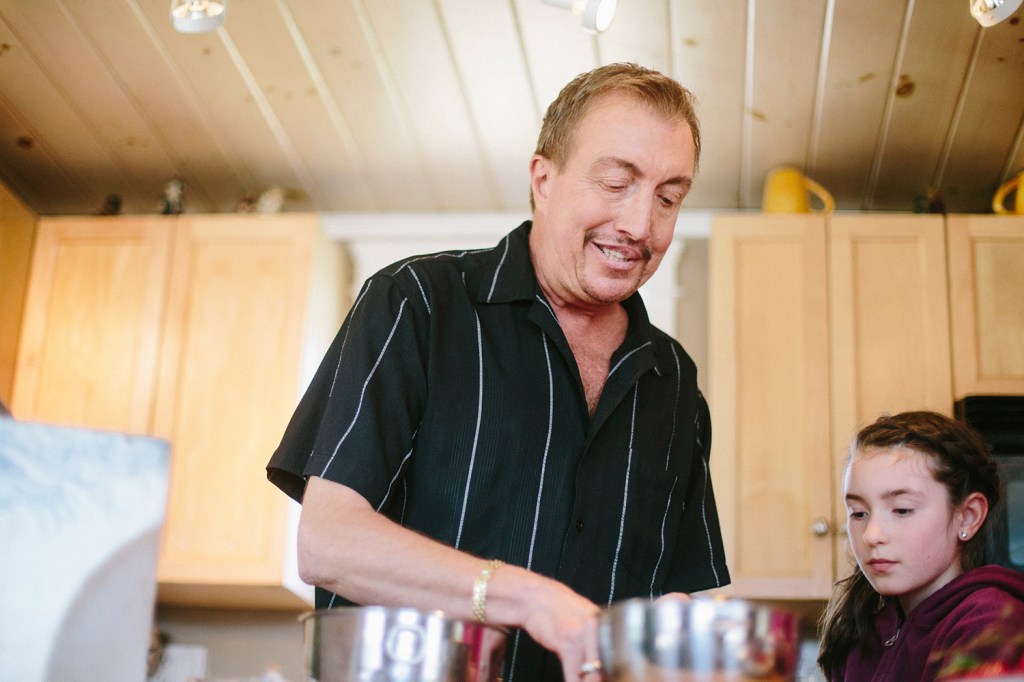
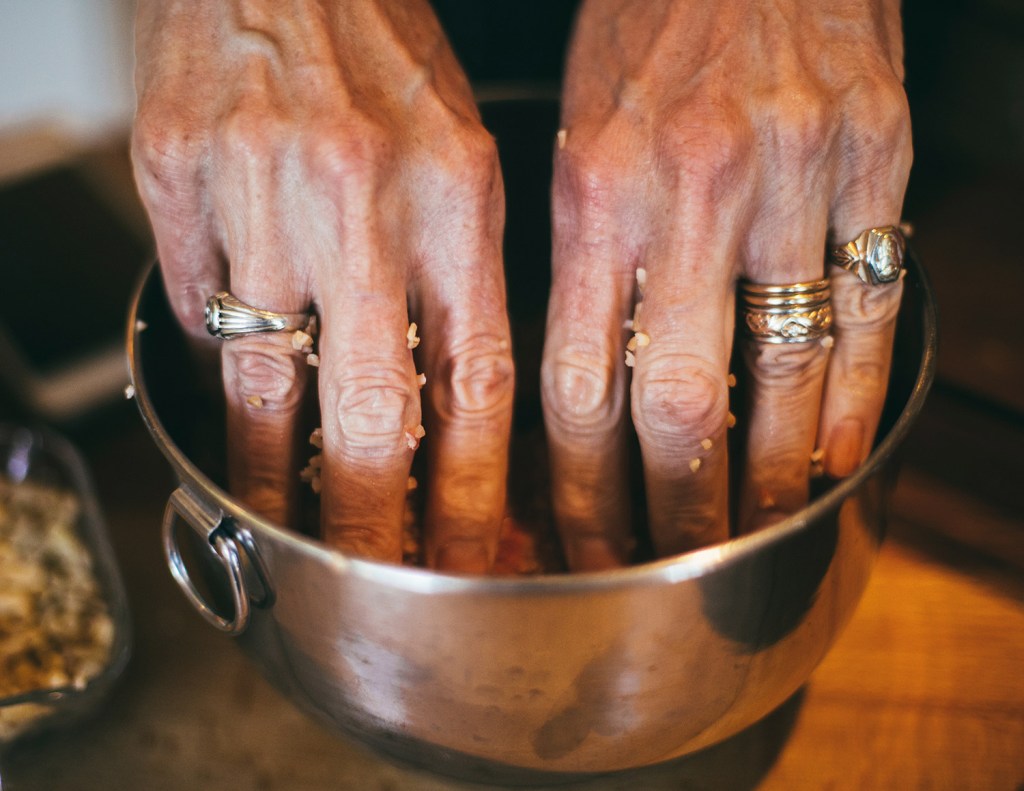
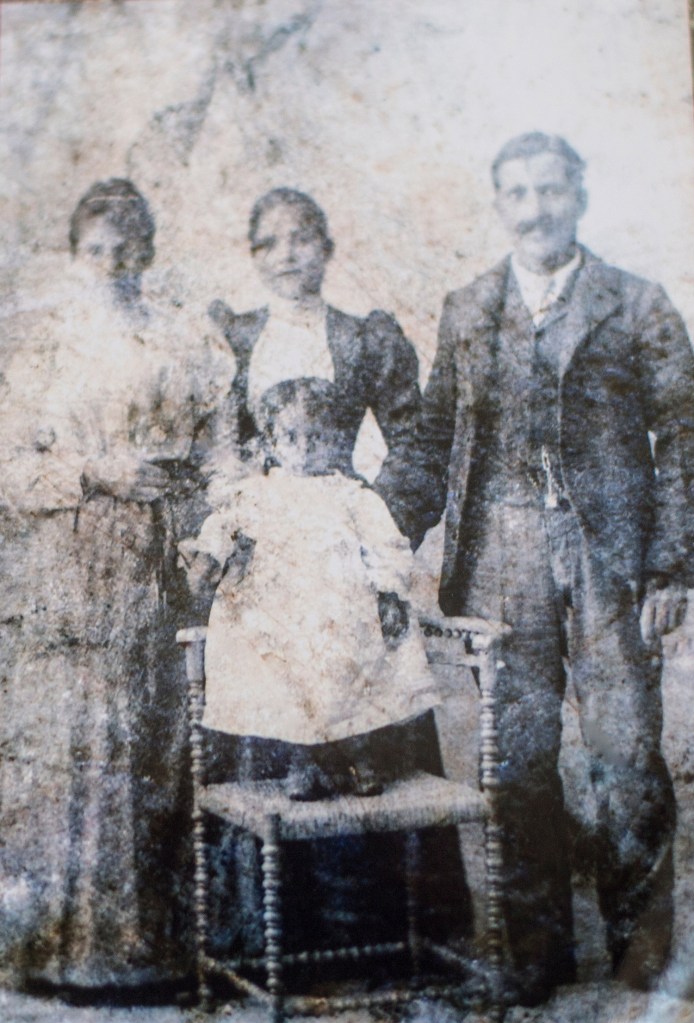
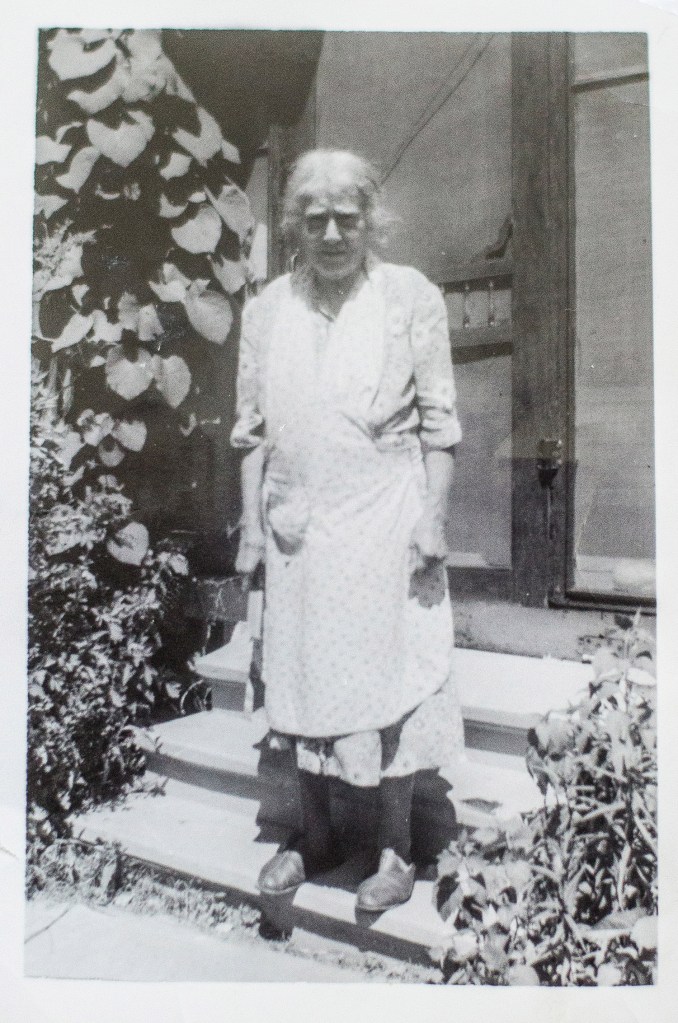
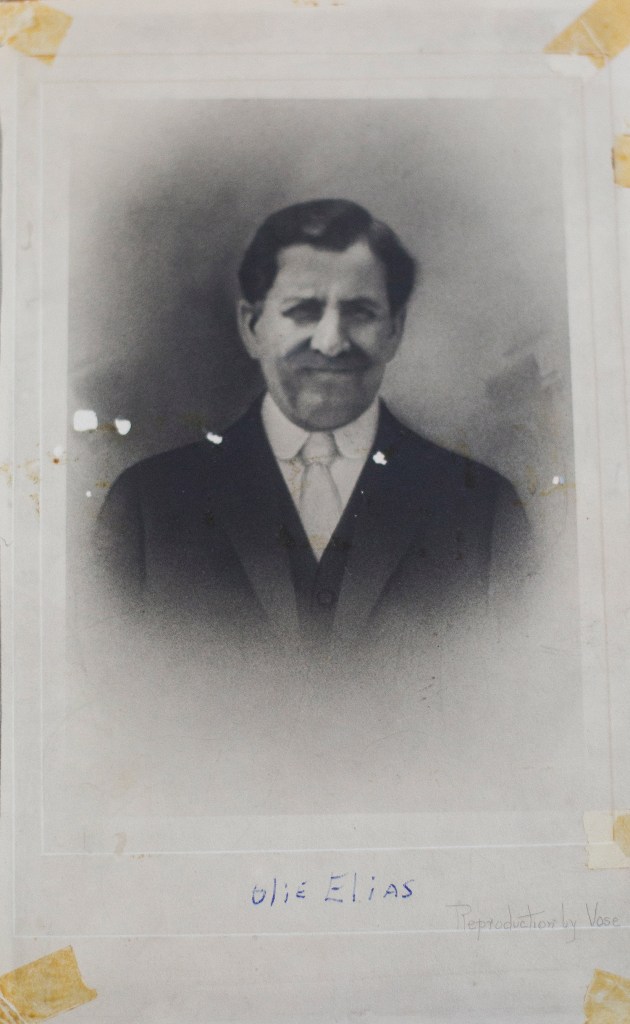
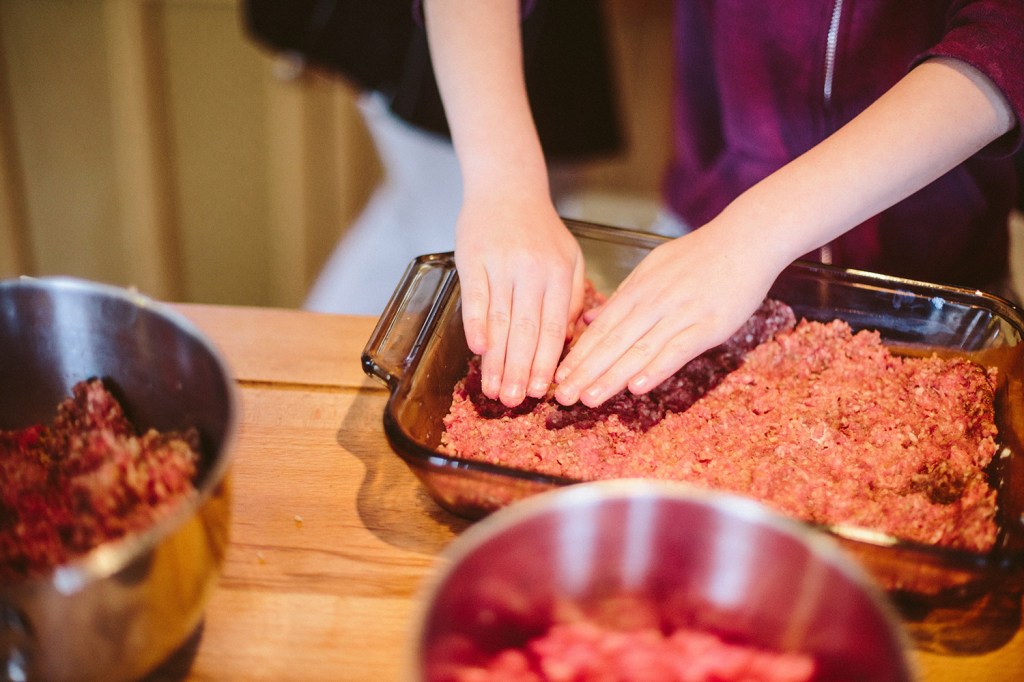
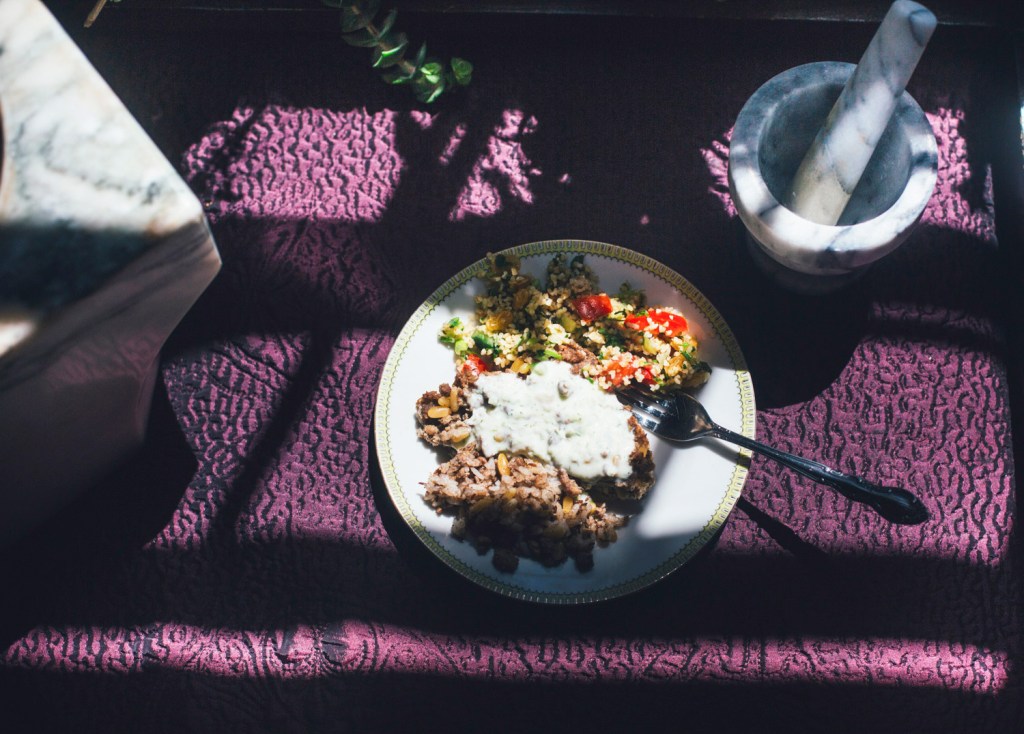

Success. Please wait for the page to reload. If the page does not reload within 5 seconds, please refresh the page.
Enter your email and password to access comments.
Hi, to comment on stories you must . This profile is in addition to your subscription and website login.
Already have a commenting profile? .
Invalid username/password.
Please check your email to confirm and complete your registration.
Only subscribers are eligible to post comments. Please subscribe or login first for digital access. Here’s why.
Use the form below to reset your password. When you've submitted your account email, we will send an email with a reset code.